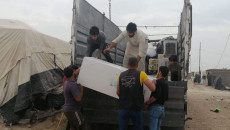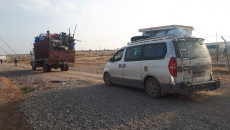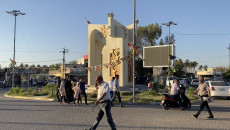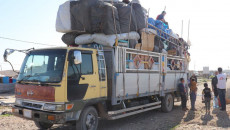All the IDP camps in the provinces Kirkuk, Diyala and Salahuddin have been emptied and the majority of the IDPs returned to their areas of origin. Even those who haven’t been willing to return have been kicked out of the camps.
Closing down all of the camps in those three provinces was finalized this week. Hundreds of thousands were displaced since the start of the ISIS war six years ago.
The head of the Immigration and Displacement Directorate in Khanaqin, Ghazi Ali, told KirkukNow on 4 December: “Between 11 and 28 December, the two IDP camps in Khanaqin were closed down. There are currently no IDP families left in the IDP camps in Khanaqin; we have put an end of life in tents and camp in accordance to orders by the Iraqi government.”
That decision by the Iraqi government was criticised in Diyala province because the IDPs who are perceived to have ties to ISIS or have tribal issues and are unable to return were not taken into consideration.
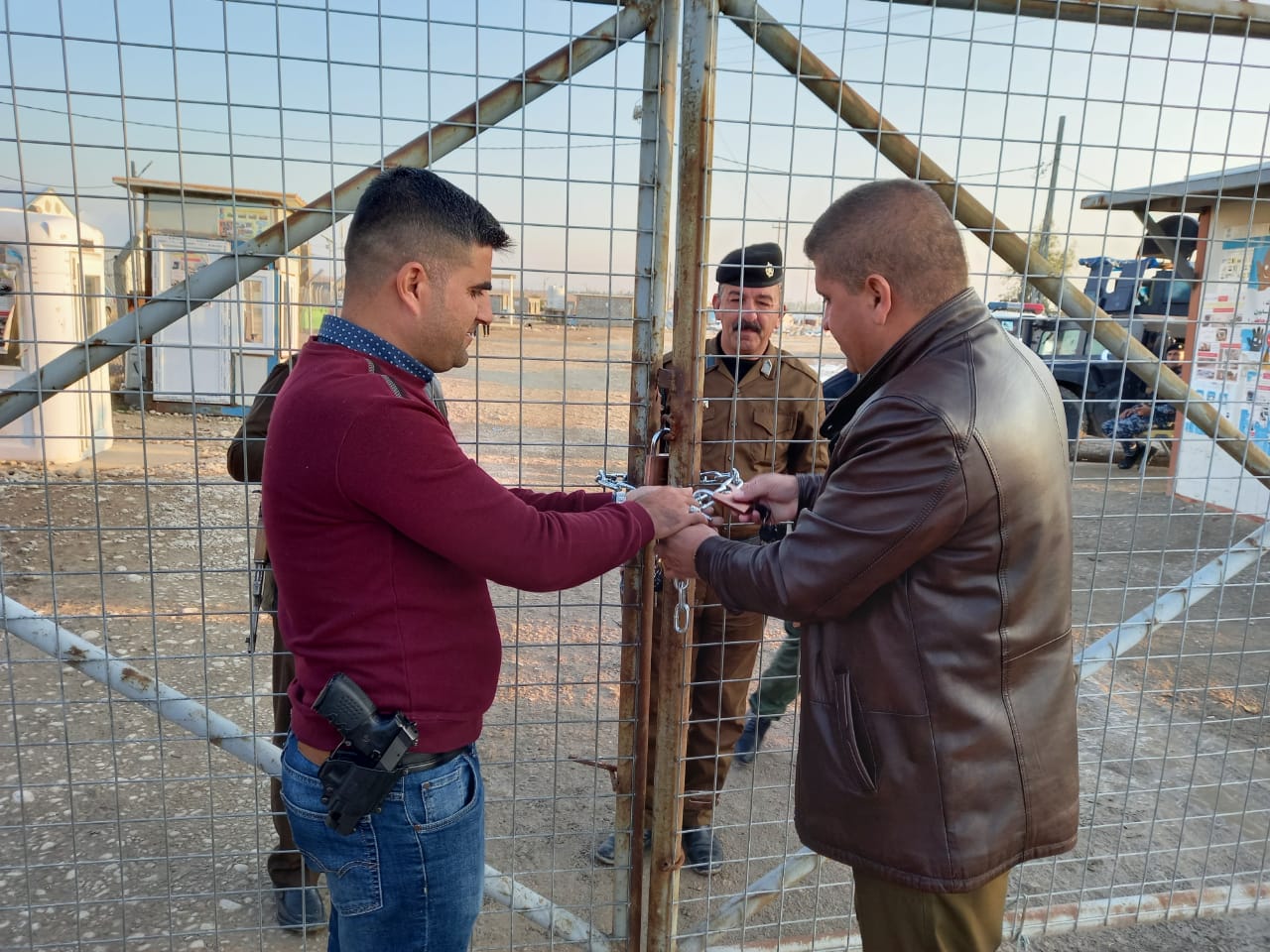
Taha Ahmad is an IDP who was residing in Alwand Camp in Khanaqin until he was kicked out last week. He had pleaded to be able to stay, to no avails. He said: “My and my family’s live were not secured due to the tribal conflicts that were brought about by the ISIS war, and which has led to the destruction of my house and properties.”
“By government orders I was supposed to return back to the Khélaniya area in Sharaban–near the Iran-Iraq border–but the tribal problems and conflicts there are not resolved and I couldn’t go back.”
the tribal problems and conflicts there are not resolved and I couldn’t go back
Ahmad was compelled to rent a house in Khanaqin district after he was kicked out of the camp, even though he is unemployed and “cannot provide” for his family he says.
When the orders to close down the camps were issued, the Iraqi Interior Ministry declared that the return process of IDPs would be on a voluntary basis and that those who face danger could stay in the camps. But at least 60 families in Diyala province were compelled to settle in the towns and cities.
Ali Ghazi says that those families were allowed to stay in Khanaqin. “Those 60 families had tribal issues and their problems were not resolved; their homes were destroyed.”
Video of a meeting of Arab tribal leaders on the IDP issue
The head of the Immigration and Displacement Directorate in Kirkuk, Ammar Sabah, told KirkukNow: “There are no IDPs left in the camps in Kirkuk, and we have closed the doors of the camps for good.”
Since the start of the ISIS war in 2014, about 40,000 people have been displaced to Kirkuk province and were settled in six camps.
Each family that was returned, was given 1.5 million Iraqi dinars (about $1,260).
“Those who had blood on their hands from the time of ISIS have been jailed. But their wives and children are innocent and have been returned to their own places. No one can stay at the camps anymore,” Sabah said.
Many of those families had requested to be able to stay in the camps for safety as their lives may be threatened if they go back to their home regions.
Several international NGOs have raised concerns about the danger those IDPs could face, but their warnings went unheeded.
On 3 November, KRG’s Interior Minister Rébar Ahmad visited Baghdad and met with officials of the Iraqi Ministry of Immigration and Displacement. Both sides have agreed that the return process must be on a voluntary basis.
There is an agreement between the security forces and the tribal leaders to allow the families of ISIS [militants] to return
Sheikh Ahmad Muhayri, a notable in Hawija, told KirkukNow: “There is an agreement between the security forces and the tribal leaders to allow the families of ISIS [militants] to return to their own places and to protect their lives.”
“All the tribes must abide by that agreement and the government must oversee its implementation so that the lives of those families are protected,” he added.




